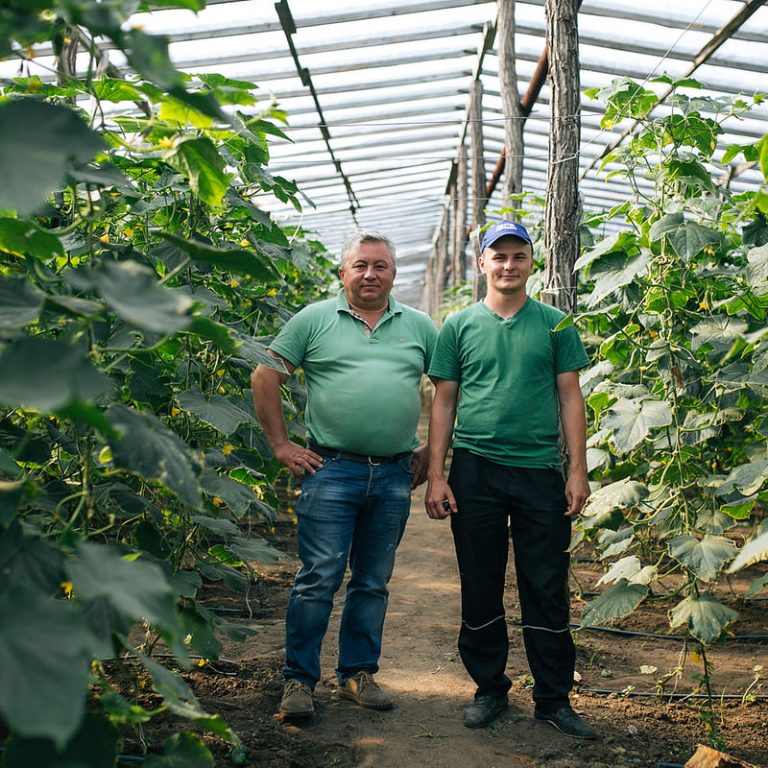The residents of the village Dobrapasove in Podniprovia, Ukraine, have been growing and selling cucumbers for several generations. Currently the village is a well known centre for the provision of these vegetables. Farmers pass on their experience to their neighbours and cooperate, creating a farming cluster. Hennadii Barannik and his son Maksym are those farmers, creating and growing their own cucumber business.
Using clusters is a very widespread form of economic organisation in Finland, the Netherlands, and Denmark, where there are government programmes to initiate and support these processes.
Currently in Ukraine the initiative for creating these clusters comes from the bottom up: entrepreneurs group together, understanding all the advantages of this type of farming model.
In contrast to a cooperative, a cluster is a more complex form of incorporation, where producers and business representatives make up at least half of the structure. The other half is suppliers of materials and equipment, logistics companies, and also government organisations, scientific institutions, etc. In countries where clusters operate successfully, the city and governmental development programs can supply more than half of a cluster’s budget. In the European Union clusters can be supported through direct financing, the issuing of interest-free loans, the reduction of custom duties, and through attracting funding for research and development.
We have already written about cabbage-producing clusters in Khorokhoryn and Velyki Kopani, as well as the tomato-growing cluster in Utkonosivka.
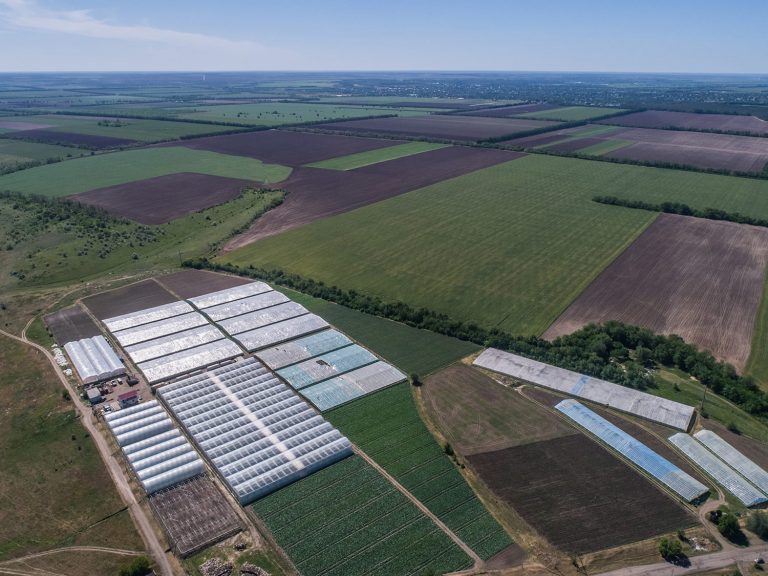
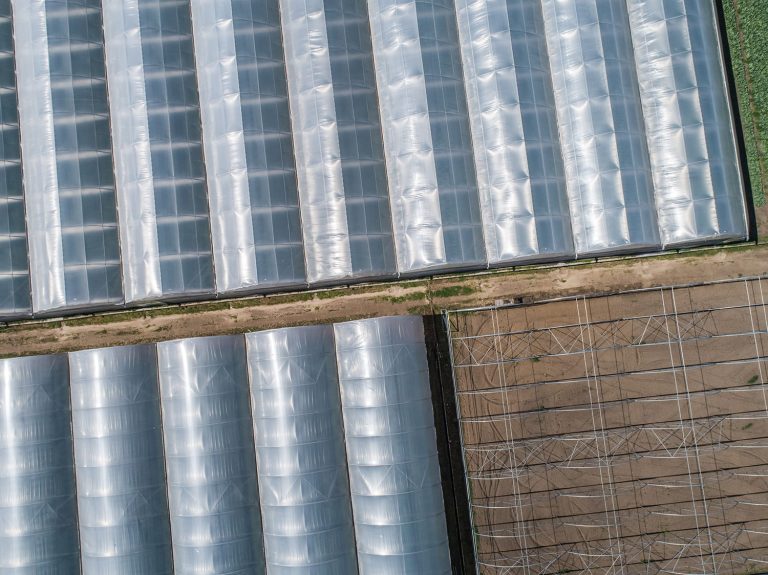
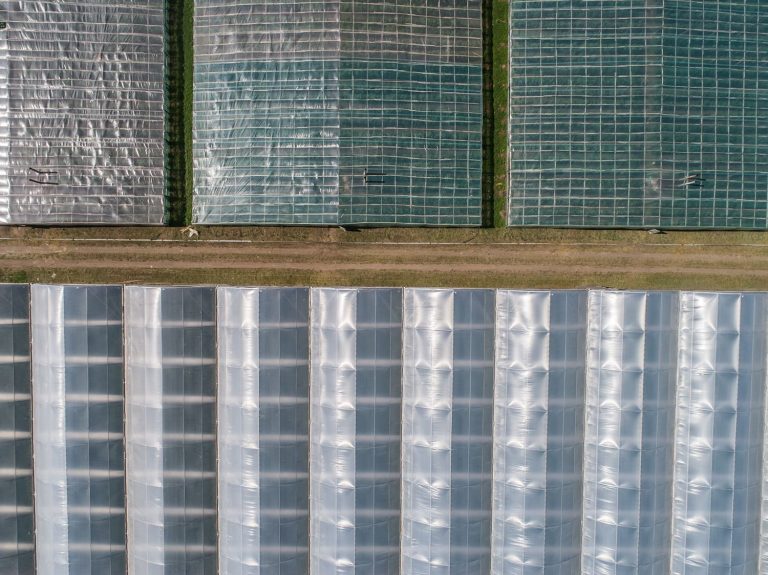
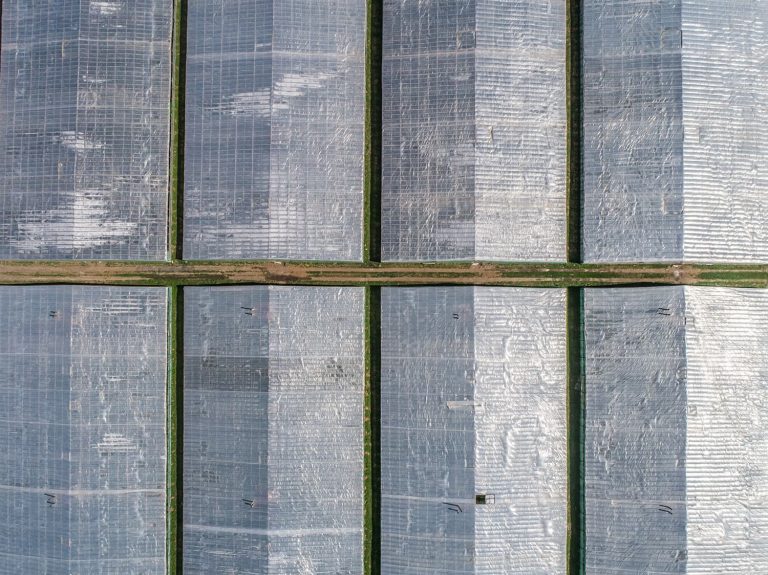
slideshow
Dobropasove
Until 2017 the village of Dobropasove was called Chervonyi Lyman (Red Estuary — tr.). The village was renamed in honor of the soldier Serhii Dobropas, a local who was killed when his plane was shot down over Luhansk.
Hennadii Barannik recalls that they began growing cucumbers here at an industrial scale in the 1970s. At that time a farmer from the neighbouring village of Kamianka was the first to build a greenhouse in the village. Then others started. Initially the frames for greenhouses were made from thick wire, before transitioning to wooden frames.
“One started, then a second joined in. It worked out for people. Having water is the most important thing. We watched each other’s attempts, and that’s how the growth began. We consult with one another, see what is working better, help and advise each other.”
At first farmers themselves traveled to markets to sell their produce, now it passes through many hands before reaching the consumer. The growth of the cucumber industry in the region around Dobropasove has provided work for the residents, eliminating one of the biggest problems of life outside the city.
“People around here are always working. Maybe they don’t run greenhouses, they do something else instead, but everyone tries to keep busy. We don’t have any idlers here.”
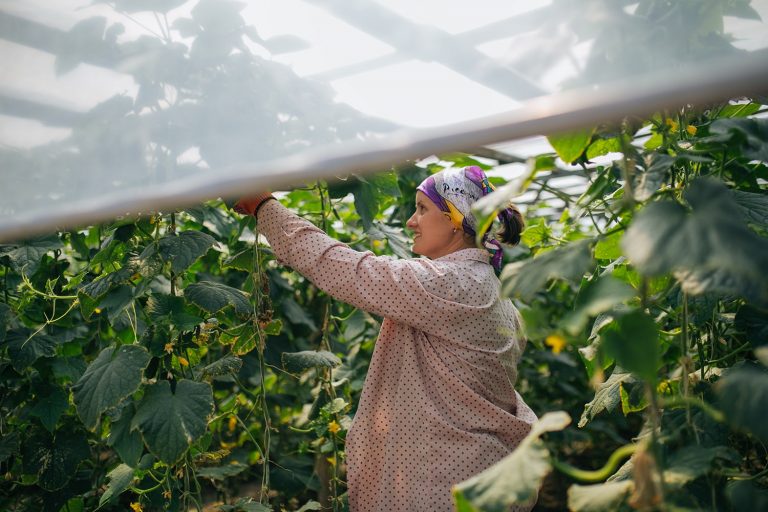
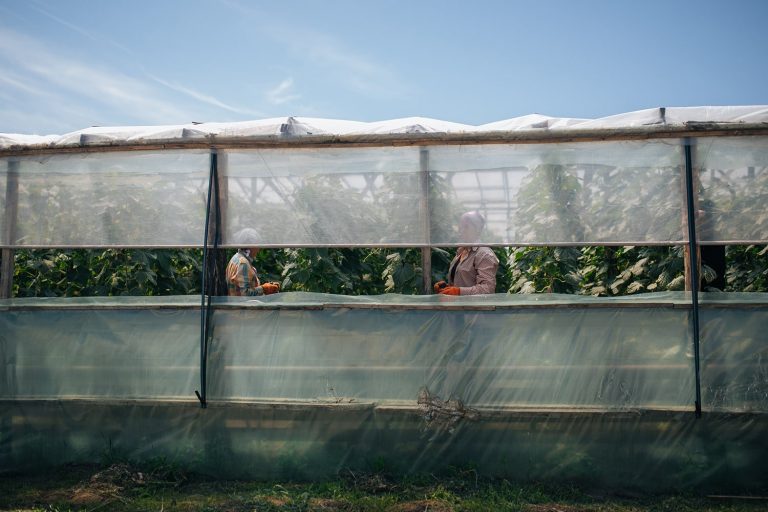
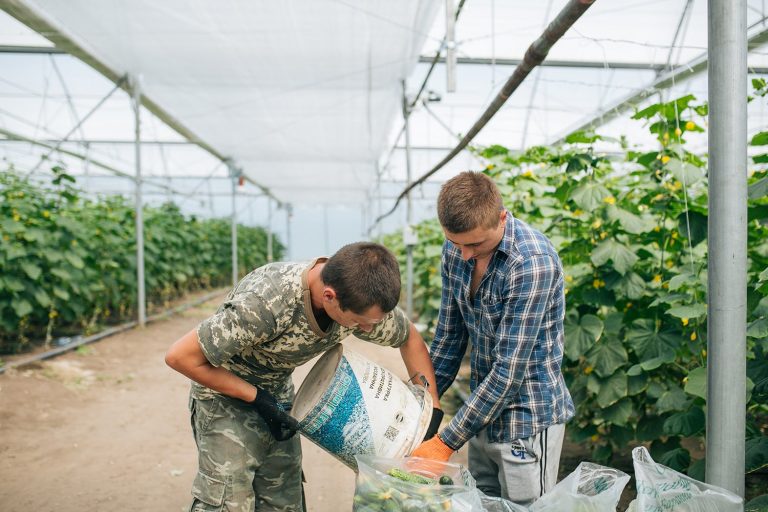
slideshow
The Baranniks
Hennadii’s parents started the family cucumber-growing business in the 1980s. His mother was a postwoman, his father an engine stoker, but they both wanted to work for themselves. For this reason they grew cucumbers in their spare time. At that time such entrepreneurial initiatives were not welcomed, Hennadii recalls:
“The authorities came with a bulldozer to tear down the greenhouses, as cultivating more than one hundred square metres of land was not allowed. Under communism everything was supposed to be one way. But, my father had bigger dreams.”

Hennadii did not take up the farming business right away. After serving in the army he went to work on the railroad, but was laid off in 1995, and thus returned to his roots. He started everything from scratch, without any outside help. At first he worked in an open field, but the next year he was able to put up greenhouses. A bit later, in the 2000s, he expanded his business by taking advantage of his right (as a resident of a rural area) to receive two hectares of land.
When they were first starting out, they loaded up their old Soviet car with cucumbers and travelled to Donetsk, located 140 kilometers from Dobropasove, to sell them. They took scales and weights and sold 1–2 kilos at a time from early morning and until midday. After some time resellers began to appear, now large wholesale buyers purchase the produce to resell to smaller stores. At the same time, the retail price has increased threefold. Currently, cucumbers are gathered mostly in Dnipro and Mariupol. Over time the business has grown, but, as the farmer asserts:
“This isn’t the limit yet, there’s still room to grow further. We keep learning, we perform analyses on the soil, and make changes to increase the harvest, according to the results.”

The youngest farmer in the family is Maksym. He was the first one to receive a formal education in olericulture. Now he shares the duties with his parents: he is responsible for training the workers, work controls, calculating the harvest and for packaging the product.
Hennadii’s parents, having handed over the business to their son, took up gardening and opened a store. He recounts with a smile:
“Our mother is a real trooper, she travels across all of Ukraine. She covers more mileage than we do.”
The Baranniks feel that people should do what they are good at, what they are familiar with or have hands-on experience with. And if you love what you do, you will prosper, and you can say your life was not spent in vain.

A Green Farm
The workday at the Barannik’s farm starts at 6:00 in the morning. Hennadii speaks calmly about the difficulties:
“I can’t say that it is easy, this work. But not everyone is meant to be an MP or minister. Someone has to pick cucumbers, grow tomatoes, while the others are meant to pass laws, or raise children. Everyone has their own path, but we need to be in our own place, that is the most important thing in this life.”
The main crop that Baranniks grow is cucumbers, but they also have some tomatoes, onions and cabbages. Hennadii explained his choice as follows:
“We do whatever works well. In Kamianka they mostly grow tomatoes, and here — we specialise in cucumbers. The demand for cucumbers is higher around here, this area allows for a bigger harvest and higher-quality produce.”
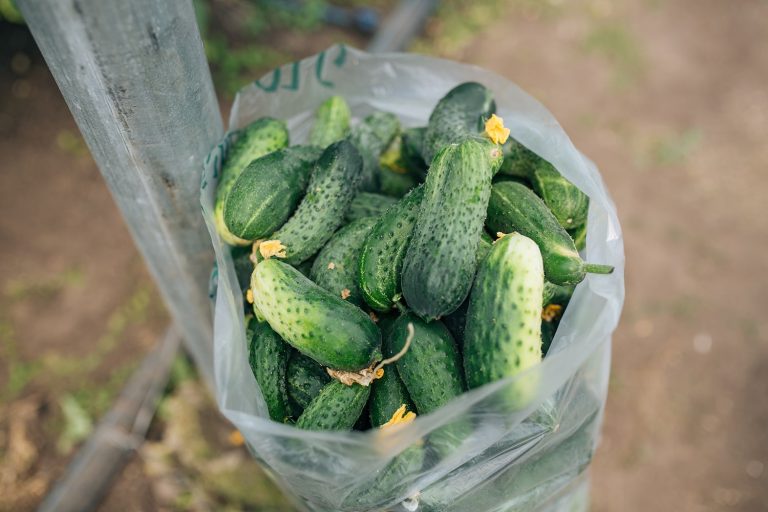
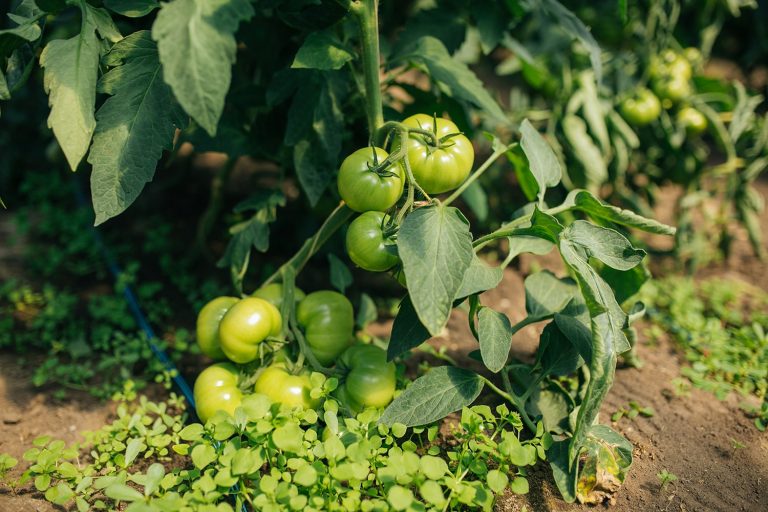
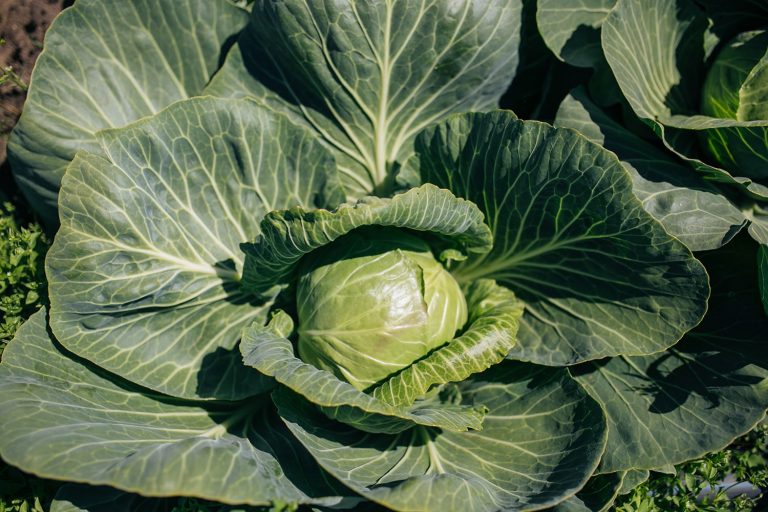
slideshow
There are many advantages to growing crops in greenhouses. First of all, the environment has almost no influence on crop yield, as the interior of the greenhouse is kept at a predetermined temperature and the crop is regularly watered. The enclosed space protects the vegetables from pests, which allows for the use of fewer chemicals. No one, however, is safe from surprises — Hennadii recounted how a year ago a strong wind broke the plastic exterior, opened up the greenhouse and all the cucumbers shrivelled up in 20 minutes.
Hennadii and Maksym’s farmstead is a part of the cooperative Vegetables of Pokrovshchyna. They also are supported by international companies, organising educational trips to exchange know-how. This was how the Baranniks, for instance, came to build a greenhouse based on an Israeli design, adopting new technology. New types of vegetables from abroad are also brought over to test in the local climate. As Hennadii explains it:
“We have two main types of cucumbers, but we also try new varieties for the future. The testing of the Barvina variety, about 12-13 years ago, started with us. We filled out a form with requirements for length, width, thickness, and the flavour quality. In Holland they came up with a variety just for us. Because in Europe buyers prefer longer cucumbers, and in our market only the shorter varieties sell well. They are easier to preserve.”

The growth of business could be aided by government support, and the ability to take loans at favourable rates. But now private partners are helping, if necessary they can provide their products up front. Business owners emphasise the trust they have built up through years of cooperation. Having such a good reputation helps further growth.
The Baranniks are sure that their cucumbers help people not only by giving them necessary vitamins, but also putting them in a good mood. This is what inspires them to keep up with their standards.
“The most important thing is the feeling that you are not only doing good for yourself, but for the community and the country too. I didn’t goof off, I didn’t drink, I gave people work. We are doing our part to make things a little bit better, at least we are trying. But I am not making history. I am not the only one — there are many of us. Good farmers, who stepped up and who care about Ukraine, who keep trying.”

